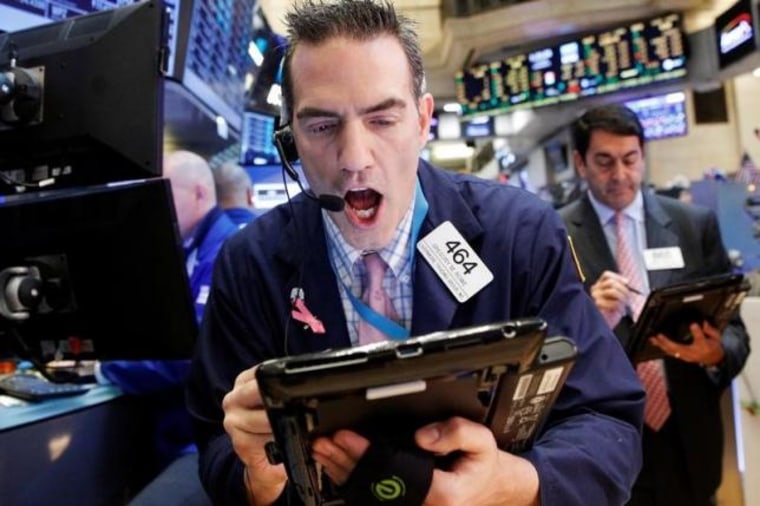Markets have been raising some red flags this week that analysts say could result in increased volatility and possibly a stock market pullback in the near term.
Driven by worries about North Korea, Syria, and the French election, investors have been loading up on safe haven plays and lightening up on risk.
One of the big concerns of the week has been the fact that a North Korean missile launch is speculated to come this weekend to commemorate its Day of the Sun, a holiday honoring the birth of its founder, Kim Il Sung. The launch was expected to be in the middle of a three-day Easter holiday weekend, and traders have been hedging ahead of it. Adding to the nervousness, the U.S. dropped the largest ever non-nuclear bomb in Afghanistan during market hours Thursday, and U.S. officials are planning a possible pre-emptive strike.
The stock market is still up sharply, with the S&P 500 having risen more than 9 percent since Election Day. But both the S&P 500 and the Dow Jones closed below their 50-day moving averages (the average of the last 50 days of closing prices) on Wednesday, a technical threshold they last closed under right around Election Day.
Unpredictability Feeds Volatility
"The unpredictability of geopolitics is making it so hard. It's causing people to say maybe I'll shoot first and ask questions later," said Sam Stovall, chief investment strategist at CFRA.
"I think depending on the severity of it, we have a pullback or a correction but because of the economic indicators I'm looking at, I'm not worried a recession is around the corner, and as a result, I don't think we're heading for a bear market," Stovall said.
Aaron Kohli, rate strategist at BMO, said the market is definitely trading on fears about North Korea and other geopolitical events, but the big change in market attitude was in March, when Republicans failed to pass a new health-care bill. That legislation was seen as a necessary step ahead of tax reform, and markets now see both as in limbo.
"It's been about reading the tea leaves of the health-care failure, and it's been slowly taking back some of the inflation and growth expectations," said Kohli. "It's been the crescendo with these [geopolitical] headlines, or tape bombs."
Stronger Dollar, Weaker Dollar
Worries about North Korea and Syria come at the same time global investors are already on edge about the potential for the National Front candidate Marine Le Pen to win the French presidential election. While not expected, a victory by Le Pen could lead to France leaving the euro zone. The first round vote is April 23, and the second round is May 7.
The fact that geopolitical tensions have been running high has clearly filtered through to markets. Stocks cut some losses towards the end of the week, and the dollar strengthened after Russia and the U.S. showed a willingness to work on their relationship and some thorny issues like Syria and North Korea.
Shortly after Secretary of State Rex Tillerson held a news briefing with his Russian counterpart on Wednesday, President Donald Trump told the Wall Street Journal he believes the dollar was too strong and that he likes low interest rates. That sent the greenback reeling, and it remained under pressure for the rest of the week.
